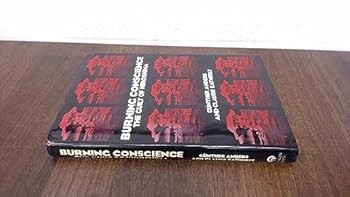Burning Conscience: The Case of the Hiroshima Pilot, Claude Eatherly
No Synopsis Available.
Format:Hardcover
Language:English
ISBN:1557782547
ISBN13:9781557782540
Release Date:January 1989
Publisher:Paragon House Publishers
Length:139 Pages
Weight:0.85 lbs.
Customer Reviews
1 rating
The story of a man's determination to face his guilt.
Published by Thriftbooks.com User , 27 years ago
Claude Eatherly was the commander of the lead plane whose job it was to check the conditions above Hiroshima and give the go ahead for dropping the atomic bomb. In the following years he felt increasing guilt for the deaths he had caused, yet society continued to regard him as a hero. He began committing petty crimes in order to be punished and spent time in jail and in mental hospital. Gunther Anders, a philosopher in Vienna, got in touch with him at the VA hospital in Waco, TX, and the correspondence between Eatherly and Anders forms the core of the book. In his first letter, Anders acknowledged Eatherly's guilt and assured him that it was only right for him to feel the burden of the unimaginable destruction caused by the atomic bomb. He spoke of the magnitude of the destruction: one can imagine (and repent for) killing one person, but killing thousands at once are beyond human comprehension. He told Eatherly that he was only a "screw in a machine" and was thus "guiltlessly guilty." It was because America could not admit that dropping the bomb was wrong that they would not allow Eatherly to repent but considered him insane. In their correspondence Eatherly and Anders discussed how they could work together for worldwide nuclear disarmament. "Burning Conscience" is the story of a man's struggle to live according to his conscience in the face of society's opposition.






